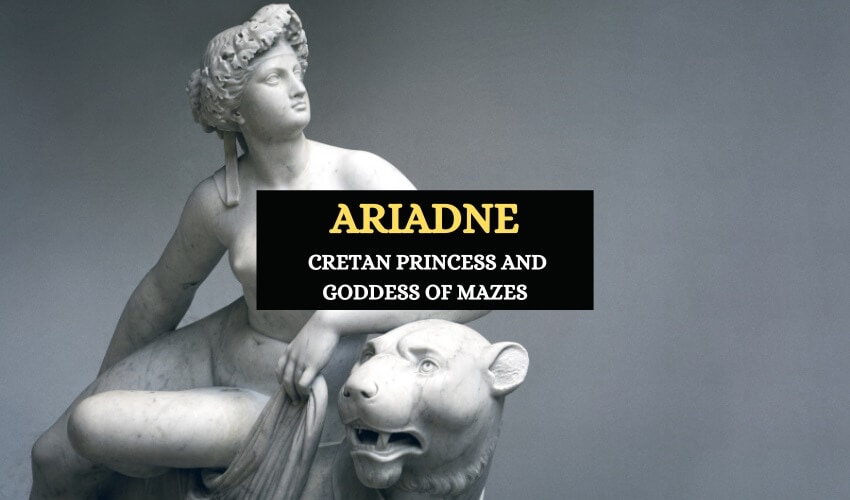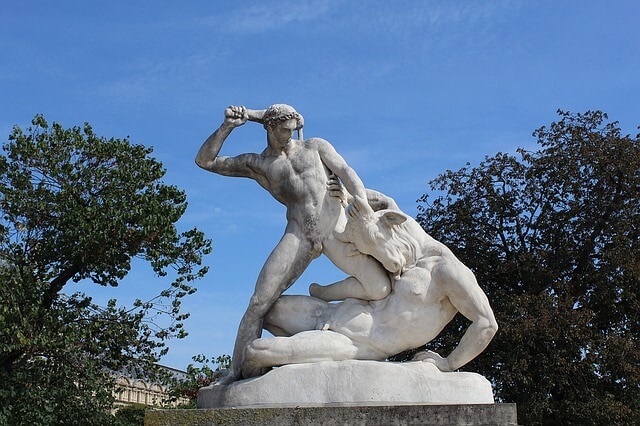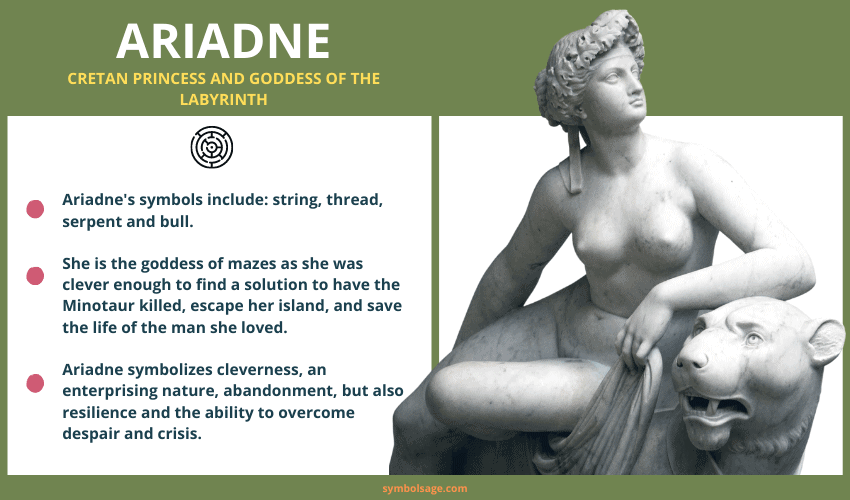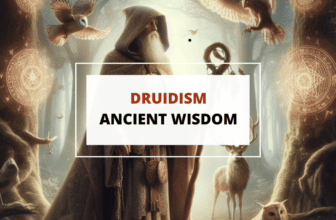
Table of Contents
Often portrayed asleep on the shore of Naxos, where she was abandoned, with Dionysius lovingly gazing at her, Ariadne is more than just a helpless woman left on a strange island. Intelligent and resourceful, she is not credited enough for her major role in the death of the Minotaur in the labyrinth. Let’s explore the labyrinth of Ariadne’s life and discover why she should get more recognition than she deserves.
Who Is Ariadne?
Her tale of love has been retold over and over through centuries, but it always begins on the island of Crete with her many siblings, among them Deucalion and Androgeus. Nothing much is said about Ariadne’s childhood because she only came to prominence a few years later after her father, Minos, conquered Athens.
After conquering Athens, her father demanded a yearly tribute of seven maidens, as well as seven youths, to be sacrificed to the Minotaur, who was a product of the union between Ariadne’s mother Pasiphae and a majestic bull. One of the young men who volunteered to be sacrificed to the monster was Theseus, the son of King Aegeus of Athens. Spying the young man from afar, Ariadne fell in love with him.

Overcome with emotions she approached Theseus, and promised to help him slay the Minotaur in the labyrinth if he would take her for his wife and bring her to Athens. Theseus swore an oath to do so, and Ariadne gave him a ball of red thread that would help guide him through the maze. She also gave him a sword.
Theseus unrolled the ball of red thread as he penetrated the bowels of the labyrinth. He found the Minotaur deep within the labyrinth and ended its life with his sword. Following the thread, he found his way back to the entrance. Theseus, Ariadne, and all the other tributes then set sail back to Athens. The ship stopped at the island of Naxos where Ariadne and Theseus would eventually separate.
Ariadne, Theseus and Dionysus
There are several accounts about what happened between Ariadne, Theseus and Dionysus, with several contradictory stories about how Ariadne was abandoned by Theseus and found by Dionysus.
It’s likely that Theseus might have been worried about what the Athenians would say if he brought back a Cretan princess and he might have worried about the fallout from that. Whatever the reason was, he decided to leave her on the island of Naxos. In most versions, Theseus abandons Ariadne while she was asleep.
Other accounts state that the Greek god Dionysius laid eyes on the beautiful Ariadne and decided to make her his wife, so he told Theseus to leave the island without her. In some accounts, Theseus had already abandoned her when Dionysius found her.
There are romantic versions of how Dionysius married the princess when Theseus left her. Ariadne and Dionysius wed and received various presents from the gods, as was the custom. Zeus granted her immortality and they became parents to five children, including Staphylus and Oenopion.
However, some accounts state that Ariadne hanged herself when she found out she was abandoned. In other accounts, she was killed by Artemis at the behest of Dionysius when she arrived on the island.
Lessons from Ariadne’s Story

- Intelligence – Ariadne was enterprising and intelligent, and in one fell swoop, was able to:
- Have the Minotaur killed, thus saving the lives of countless young men and women who were fed to it.
- Save the man she loved from being killed by the Minotaur.
- Escape her home and find her way out of Crete
- Be with the man she loved
- Resilience – Her story also signifies the importance of resilience and strength. Despite being abandoned by Theseus, Ariadne overcame her bad situation and found love with Dionysus.
- Personal Growth – Ariadne’s thread and the labyrinth are symbols of personal growth and the symbolic journey of getting to know ourselves.
Ariadne Through the Years
Ariadne’s story has inspired countless operas, paintings, and works of literature over the years. Classical writers such as Catullus, Ovid, and Virgil as well as modern writers such as Jorge Luis Borges and Umberto Eco have featured her in their works. She is also featured in the opera Ariadne auf Naxos by Richard Strauss.
Ariadne Facts
It means Very Holy.
She was the wife of the god Dionysus and was made immortal.
Pasiphae and Minos, King of Crete.
Originally from Crete, Ariadne then lived on the island Naxos before eventually moving to Olympus with the other gods.
Dionysus and Theseus.
Yes, she had at least two children – Staphylus and Oenopion.
Thread, labyrinth, bull, serpent and string.
Yes, either Arianna or Ariadna.
In Brief
Ariadne remains an important figure of Greek myth, playing a central role in the story of the Minotaur. Although not everything occurred to her advantage, Ariadne found clever ways to solve her problems. Even today, Ariadne’s thread is a term for








